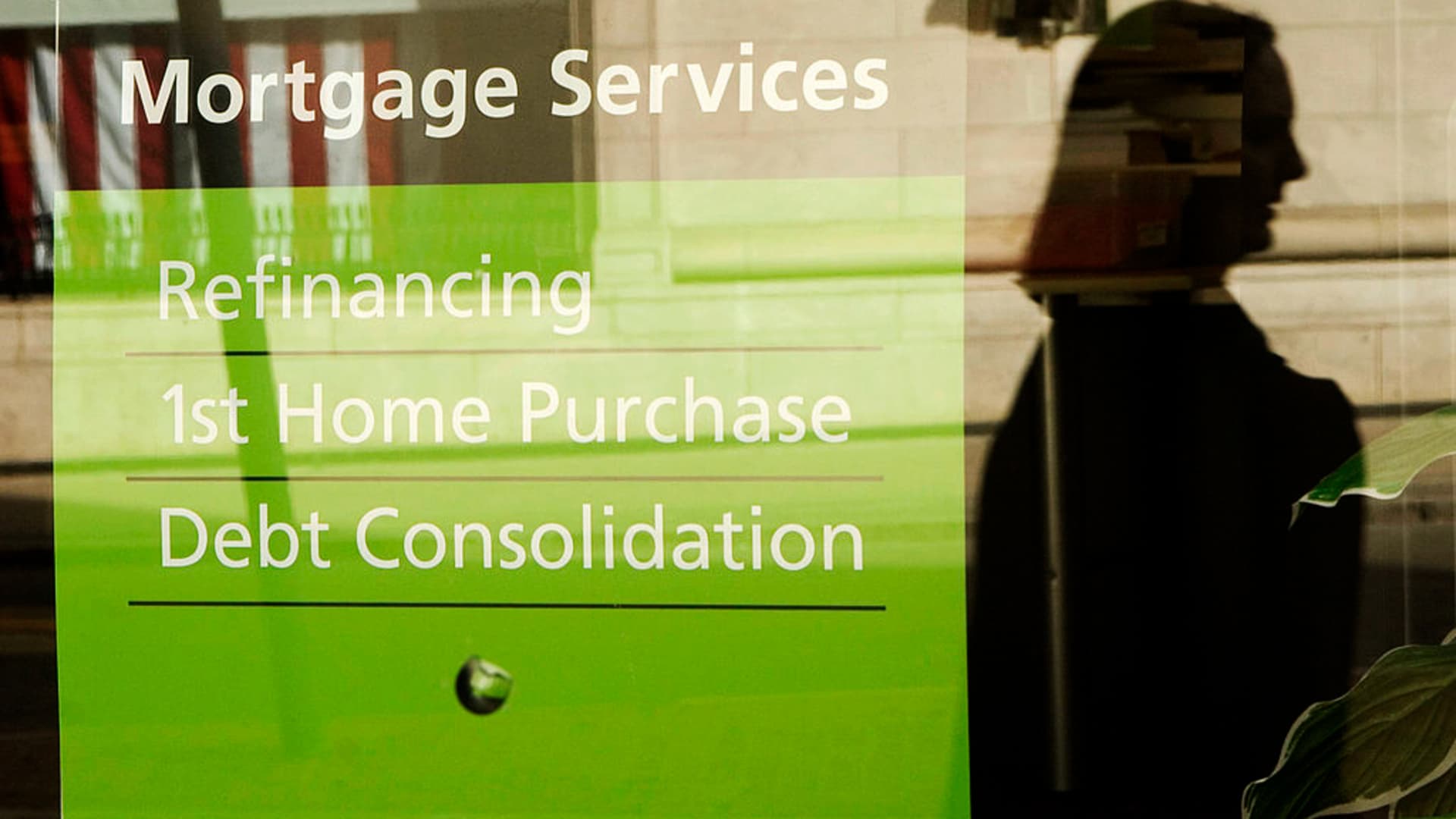It’s bad enough mortgage rates are over 7% – now it’s harder to qualify for a home loan
2 min read
JB Reed | Bloomberg | Getty Images
It’s a double whammy for would-be homebuyers. Not only are interest rates soaring, it’s getting harder to qualify for a loan.
The average rate on the popular 30-year fixed mortgage climbed over 7% at the end of last week, according to Mortgage News Daily, and is expected to hit around 7.125% on Tuesday. It’s been over 7% for several days.
Meanwhile, mortgage credit availability is now at the lowest level since March 2013, which was when housing was in a slow recovery from the financial crisis at the end of the prior decade. It fell for the seventh consecutive month in September, down 5.4% from August, according to a monthly index from the Mortgage Bankers Association.
While lenders may be desperate for business, as mortgage demand drops due to higher rates, they are also more concerned about a weaker economy, which could lead to higher delinquencies. Executives and economists have warned the U.S. could fall into a recession in the coming months as the Federal Reserve hikes rates to battle high inflation.
“There was a smaller appetite for lower credit score and high [loan-to-value] loan programs,” Joel Kan, a Mortgage Bankers Association economist, said in a release.
Mortgage delinquencies, at the moment, sit near record lows. While new foreclosure actions rose 15% from July to August, they were still 44% below pre-pandemic levels, according to Black Knight, a mortgage software and analytics company.
Credit availability fell the most for jumbo loans, which more borrowers today have to use due to higher home prices, according to the Mortgage Bankers Association. Higher prices also have more borrowers turning to adjustable-rate mortgages, because they offer lower interest rates. These loan rates can be fixed for up to 10 years, but they are considered riskier mortgages.
Borrowers are clearly concerned that mortgage rates will move even higher. While mortgage rates don’t follow the federal funds rate exactly, they are influenced heavily by the Fed’s policy.
“The Fed is determined to hike rates as high as it can and keep them there as long as it can, even if that means the economy suffers,” Matthew Graham, chief operating officer of Mortgage News Daily, wrote on its website.
Graham noted the Fed is not considering mortgage rates or the housing market because home prices are overheated and a correction is “good and necessary.”







